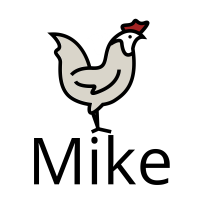Not that it personally affects me- I’m not in USA and it’s one of the platforms I dislike the most. But I can’t find a concise explanation for why.
I’ve searched for news articles and those I found either don’t address the reason behind the ban and talk about US politics, or are vague about it, saying it would collect user sensitive data.
I’ve also found lists of countries banning TikTok from government devices, okay I understand that, and some countries banning it completely because of cultural sensitivities, which I doubt is US’ case.
Fair enough. What kind of user sensitive data would it be collecting? Isn’t this what most social media apps do already? What makes TikTok stand out in this regard?
People from within China have access to extensive user data collected by TikTok and use that access to retrieve the data. TikTok basically contains spyware to circumvent system restrictions, so the collected data is very sensitive.
The US laws do not allow this data to leave the country.
TikTok does not restrict this foreign access for unknown reasons. (Suspected state actors involved.)
So it will probably be banned to stop the spying.
https://apnews.com/article/tiktok-ftc-investigation-china-data-e91e02db5c4f3f7d5836ecafedbf4714
Its illegal, but it most certainly does allow it. US companies also collect this data, and not all of their servers are US based.
It basically boils down to the USA not wanting China to be the ones collecting all that data. Which is a bit tenuous. The owner of TikTok is ByteDance, ByteDance is registered in the Caymans, with global headquarters in LA and Singapore. The current CEO is a Chinese national, but lives in Singapore. TikTok does collect quite a lot of data, but the FB app collects at least as much. It’s a bit of Sinophobia.
My personal pet theory is the US alphabet boys have a deal with all the other social media giants for first pick of data they mine, and TikTok didn’t want to play ball.This is just what I’ve kinda thought, it’s by no means absolute fact, and I look forward to hearing what other people think/know about it.
While data privacy is a concern, in my opinion the real fear motivating the government is the massive control China has, indirectly, through TikTok, over citizens’ beliefs and culture.
As another comment pointed out, Facebook (and Cambridge Analytica) had an enormous role in Donald Trump getting elected. That is the kind of influence and power that shouldn’t be in the hands of a foreign power (ironically, it’s the kind of power the US has wielded for generations over many countries). And the US especially doesn’t want China or Russia to have that power.
If China felt inclined, they very likely could push to have the algorithm modified to fit a particular agenda - say perhaps promoting a pro-China candidate - and most users would barely notice and slowly be drip fed posts that nudge them in a particular direction. People in power could start to lose that power at the behest of TikTok.
As many will likely point out, there’s a good arm’s distance between China and TikTok right now, as far as we know, but it’s possible they are more involved than they let on (much like the NSA and Facebook) and could become more involved over time. It’s a risk the government is unwilling to take.
A good example of what kinds of things can happen is when TikTok published a post to every US user with their congressperson’s number, urging them to call them to protest the ban. I’m certain that scared the shit out of the US government and probably did more to force the ban down mid than anything else.
My personal pet theory is the US alphabet boys have a deal with all the other social media giants for first pick of data they mine, and TikTok didn’t want to play ball.
The NSA had a plan to implement a wide spectrum data capture on US citizens … which it cancelled right around the same time Facebook got a large angel investment.
https://unlimitedhangout.com/2021/04/investigative-reports/the-military-origins-of-facebook/
You are nearly certainly correct that TikTok did not want play the same game as other US social media.




